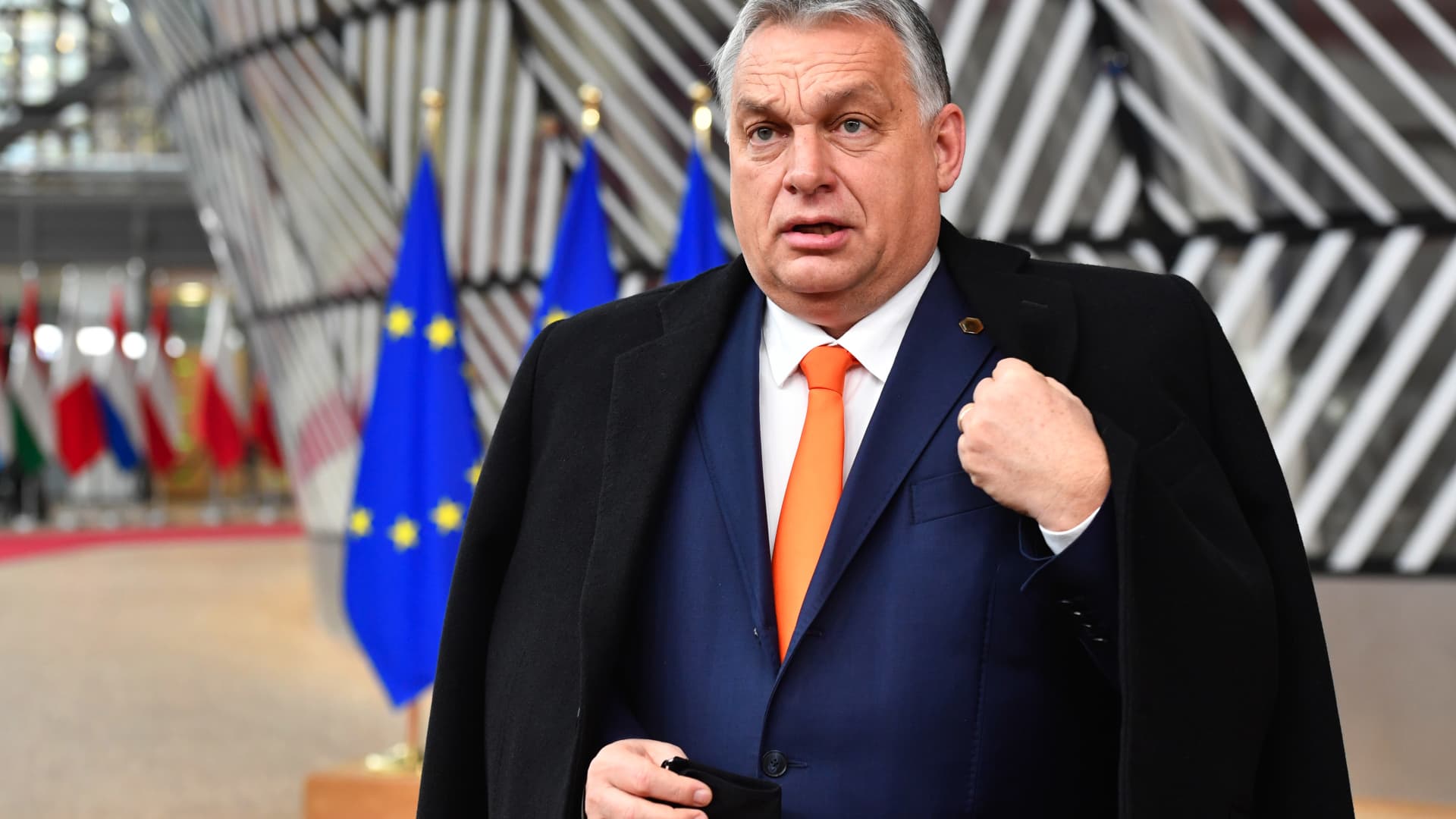Right-wing Prime Minister Viktor Orban takes early lead in Hungary election

Viktor Orban, Hungary’s prime minister, speaks to journalists as he arrives at a European Union (EU) leaders summit.
Bloomberg | Bloomberg | Getty Images
Nationalist Prime Minister Viktor Orban looks set to remain in power in Hungary with early projections showing his Fidesz party leading by a wide margin after Sunday’s nationwide election.
With Orban seeking a fourth consecutive term in office, early results showed his party was comfortably ahead of the opposition alliance United for Hungary.
Voting for the 199 members of parliament is split between single-member constituencies and closed-list nationwide constituencies. Fidesz was on 58% of the votes in nationwide constituencies, versus 30.4% for the six-party opposition, according to Reuters. And it was also ahead in most of the single-member constituencies, the early results showed.
However, The Associated Press notes that many of the early votes came from the countryside, where Fidesz enjoys more of the support. The election had been predicted to be closer than it previous years, but Fidesz still held a 5-6 percentage point lead in the polls leading up to Sunday’s vote.
Orban, widely regarded as the most pro-Kremlin leader of the 27 nations of the European Union, has spent 12 years in power in Budapest. He is the country’s longest-serving leader since the fall of communism in 1989 and has long been a thorn in the side of the European Union.
Kremlin links
Orban has often boasted of his close relationship with Russian President Vladimir Putin, and it’s that link that became a major challenge for the electoral campaign of his ruling Fidesz party.
There have been commercial and energy deals between the two nations. Over the last decade, Hungary has increased its share of imports of Russian natural gas, from 9.070 million cubic meters in 2010 to a high of 17.715 million cubic meters in 2019, according to Eurostat. Hungary now gets close to 85% of its gas from Russia, and 64% of its oil.
Hungary also became the first EU nation to buy a Russian-made Covid-19 vaccine — even though it wasn’t approved by European regulators.
But Orban has remained loyal to the European Union in the wake of Russia’s unprovoked invasion of Ukraine, and has south to downplay his ties to Putin. His messaging over previous weeks has been a Hungary “must stay out of this conflict” approach.
His government announced that Hungary will welcome Ukrainian refugees and is also supportive of Ukraine’s membership application to the EU. This is on top of having approved, together with the other EU member states, tough sanctions against Russian oligarchs and the Russian economy.
Hungary is also a member of NATO and is open to hosting troops from the military alliance on its territory. However, it has rejected any energy sanctions on Moscow and has banned the direct transit of lethal weapons to Ukraine via Hungary.
Influence over courts
After joining the EU in 2004, Budapest has frequently been at loggerheads with Brussels. The former communist state has often been criticized for looking to assert its influence over courts, the media and other independent institutions.
His party Fidesz still has stringent control over state media and previous election campaigns have been based on an anti-immigration and protectionist message. Indeed, the country built a fence on its southern border during the 2015 European migration crisis.
—CNBC’s Silvia Amaro and Sam Meredith contributed to this article.
